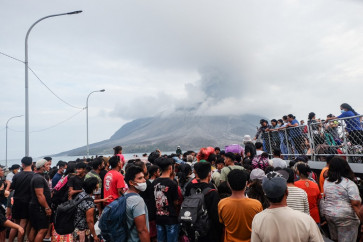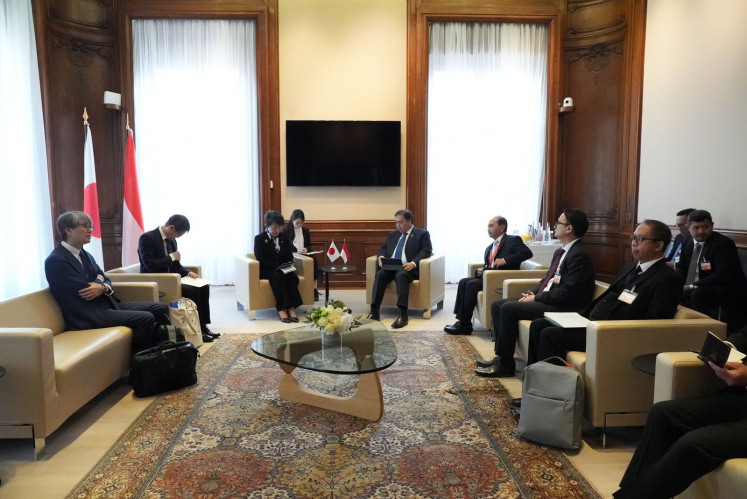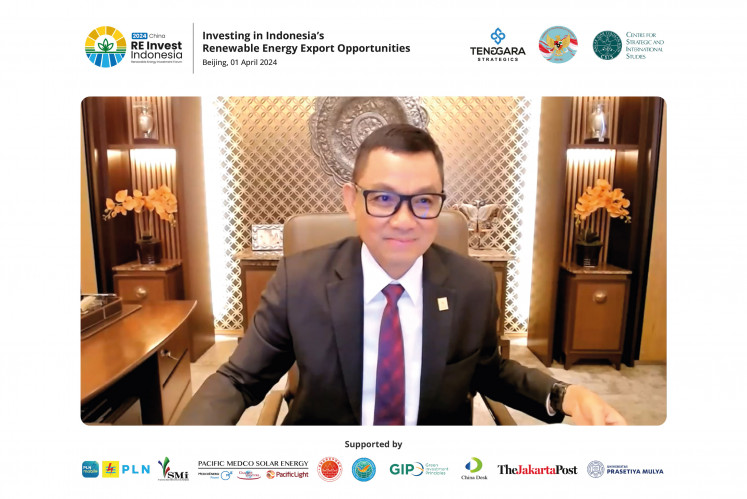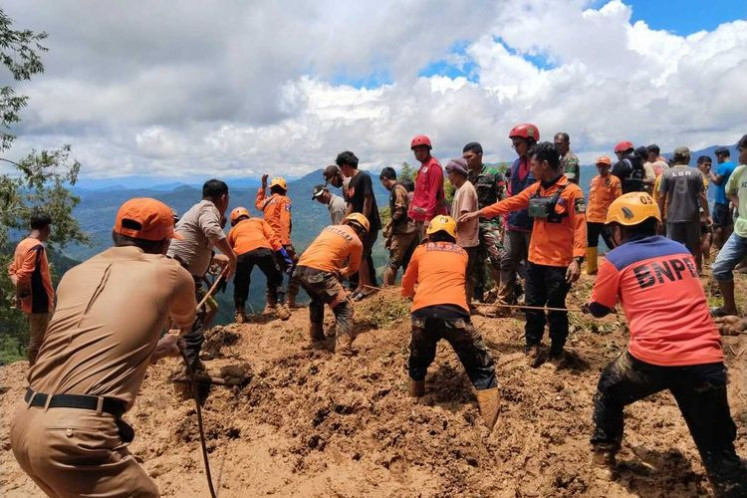Indonesia plays outstanding role in Smart Cities Meeting in Japan
Change Size
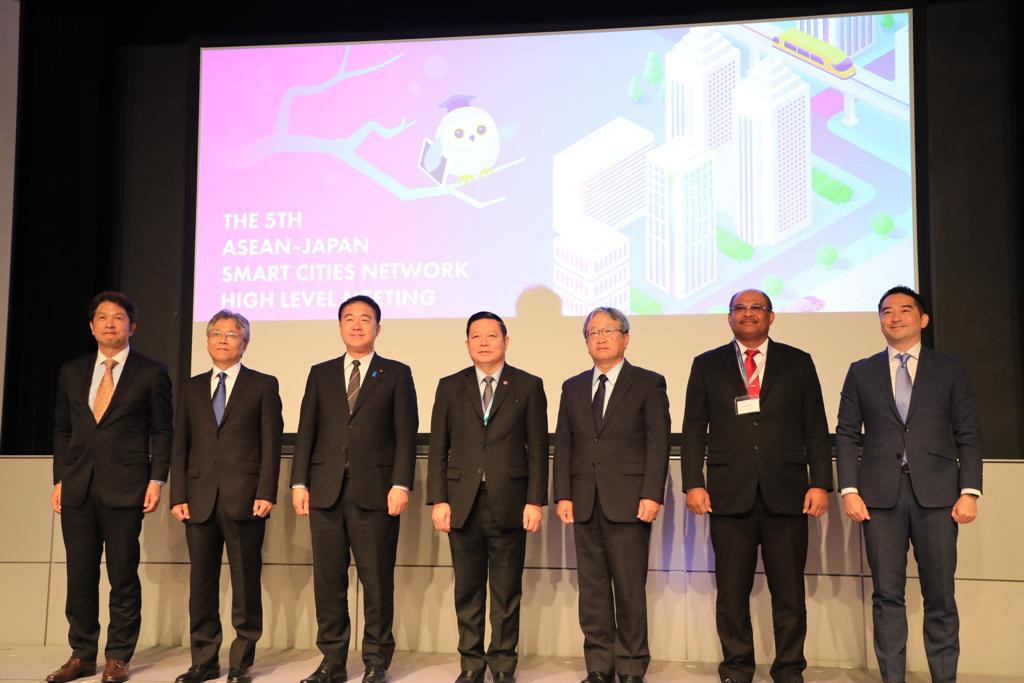
S
afrizal ZA, the Home Ministry’s director general of regional administration development, opened and closed the 5th ASEAN-Japan Smart Cities Network High-Level Meeting that ran from Oct. 26 to 27 in Tsukuba, Ibaraki prefecture, Japan.
Safrizal, who is also the Indonesia representative and chairman of the ASEAN Smart Cities Network (ASCN) 2023, cochaired the meeting that was attended by ASEAN Secretary-General Kao Kim Hourn, Japanese Land, Infrastructure, Transport and Tourism Minister Tetsuo Saito, Agriculture, Infrastructure and Hokkaido Vice Minister Shinichi Sakaki and International Projects Vice Minister Yusuke Amano, as well as ASCN members and regional representatives.
The meeting’s delegates had an opportunity to conduct a field visit to Tsukuba, which is nicknamed “the Science City” and is one of the world’s leading science and technology centers. It is also where Japan’s spaceport and biggest science and technology center is located.
“I encourage collaborations to cope with the challenges regarding the development of smart cities and exploring innovative solutions. ASEAN and Japan need to increase collaboration, such as on strategies to reduce disaster risks by implementing concrete programs,” said Safrizal.
Technology influenced all aspects of human life, he said, and the advancements in technological developments from year to year posed a major challenge for national development, as well as global society and economy.
One issue that commonly affected residents was safety and comfort.
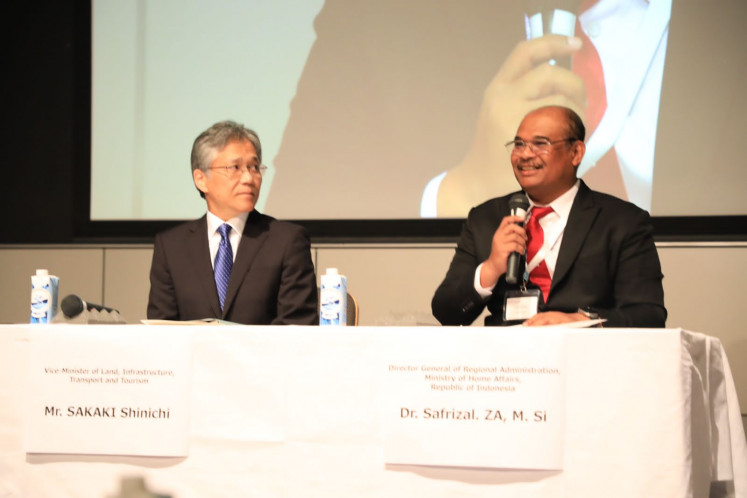
The United Nations recorded that almost 84 percent of the world’s fastest growing cities facing climate change and extreme disaster were located in Asia and Africa.
“Climate change threatens food production, rising sea levels and [other aspects], which have an adverse impact on environmental balance. This could potentially affect urban resilience. Therefore, it is necessary to create tough cities, embodied through smart city governance,” said Safrizal.
Meanwhile, developing a city should involve a plan that took into account the physical and nonphysical, as well as the principle of public participation.
Safrizal noted that developing a tough city across multidimensional aspects involved at least six priorities. First was infrastructure resilience, second was climate adaptation and third, social resilience. The fourth was urban planning and management, fifth was sustainable development through green technology and the sixth and final priority was using data, analysis and technology through smart city technology to monitor and cope with challenges.
“There is no doubt that [building] a tough city requires the strong commitment of stakeholders, policymakers and residents that is combined in parallel with international collaboration to reinforce the knowledge base, experience and financing,” he added.
In his closing remarks at the high-level meeting, Safrizal expressed his high appreciation to all delegates for sharing their insights on how to cope with critical issues related to urban resilience and how to reduce disaster risks.
Safrizal conveyed special appreciation for infrastructure and tourism minister Saito and the ministry’s initiative in organizing the pivotal meeting, while acknowledging the incredible effort made to maintain the partnership between ASEAN and Japan in building and developing smart cities.
“Our sincere thanks go to all participants, the Japanese government and the representatives of ASEAN countries at this ASEAN Smart Cities Network event, under Indonesia’s chairmanship this year. Indonesia will continue to encourage the expansion of international collaboration to strengthen [our collective] efforts to realize ASEAN as a global epicentrum of growth,” he said, referring to the theme of Indonesia’s 2023 ASEAN chairmanship.

